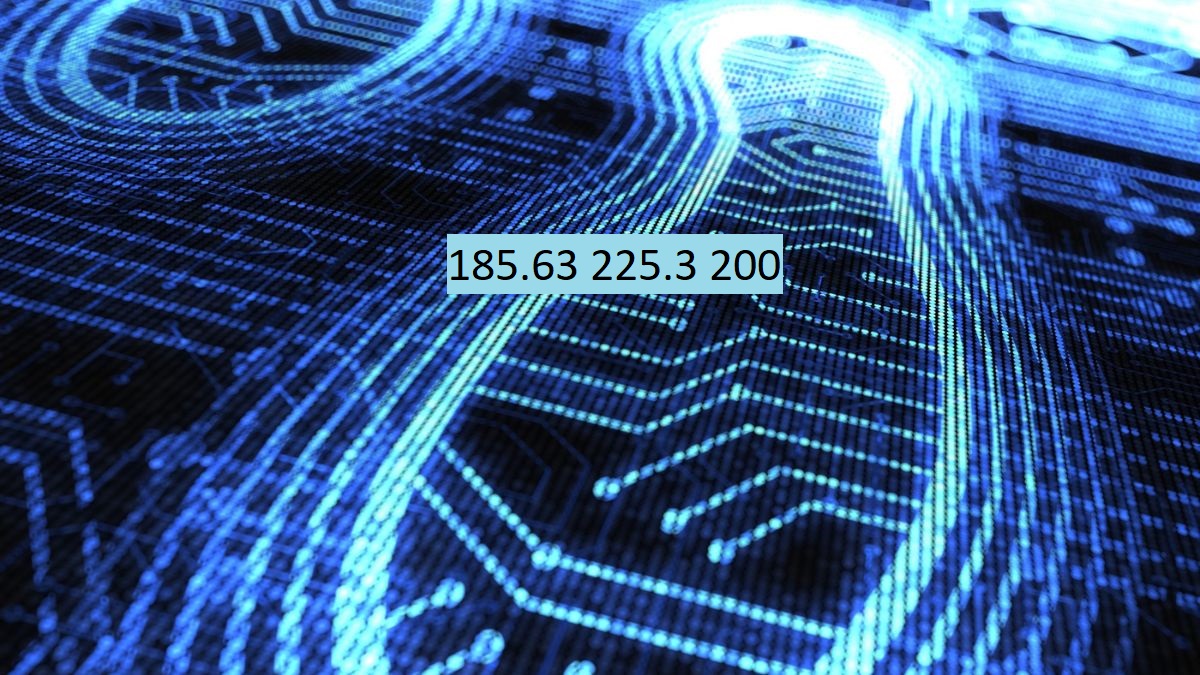Introduction to IP Addresses 185.63.225.3.200
In today’s digital landscape, every click and keystroke can reveal a wealth of information. At the heart of this interconnected web are IP addresses—unique identifiers that play a crucial role in how devices communicate online. Among these numbers lies the intriguing case of 185.63.225.3.200 an IP address that holds significant relevance in the realm of cybersecurity.
But what exactly does it mean for your online security? How can hackers use such addresses to their advantage? As we navigate through the complexities of cyber threats and protective measures, understanding the importance of IP addresses becomes essential for everyone—from casual internet users to IT professionals.
Let’s dive deeper into why 185.63.225.3.200 is more than just another string of digits; it’s a vital piece in the puzzle of cybersecurity awareness and protection.
What is the 185.63.225.3.200 IP Address?
The IP address 185.63.225.3.200 appears to follow a common format, but it stands out due to its specific numerical sequence.
This address is classified as an IPv4 (Internet Protocol version 4) address, which consists of four octets separated by periods.
Each segment can range from 0 to 255, creating a vast array of possible addresses for devices on the internet.
When examining this particular IP, it’s essential to ensure that you’ve noted it correctly because this one has five segments instead of the standard four.
Such discrepancies can lead to confusion regarding its purpose or origin in network communication and cybersecurity contexts.
Understanding how this IP fits into broader networking principles helps in identifying secure connections or potential threats associated with misconfigured addresses.
The Importance of IP Addresses in Cybersecurity
IP addresses serve as digital identifiers for devices connected to the internet. They play a crucial role in establishing communication between systems.
In cybersecurity, these identifiers help track the source of cyber threats. By analyzing IP addresses, security teams can pinpoint attacks and identify malicious actors. This process is essential for developing effective countermeasures.
IP addresses also enable network monitoring. Administrators use them to observe traffic patterns and detect unusual activities. Such vigilance is vital for early threat detection and response.
Furthermore, geo-location features linked with IP addresses provide insights into potential risks based on regional trends. Understanding where attacks originate can inform broader security strategies.
Managing IP address information effectively enhances overall organizational safety in an increasingly interconnected world.
How Hackers Can Exploit IP Addresses
Hackers are constantly on the lookout for vulnerabilities, and IP addresses can be a goldmine. By pinpointing an IP address like 185.63.225.3.200, they can launch attacks that compromise security.
One common tactic is known as IP spoofing. This involves forging an IP address to hide the true origin of malicious activity, allowing hackers to bypass security measures undetected.
Another method is Distributed Denial of Service (DDoS) attacks. By overwhelming a target with traffic from multiple sources linked to various IPs, they can render websites inoperable.
Additionally, hackers may exploit weak points through port scanning—identifying open ports associated with specific services that could be vulnerable to intrusion.
With each technique, the stakes rise higher for individuals and organizations alike. Understanding these threats becomes essential in protecting sensitive data and maintaining online integrity.
Protecting Your IP Address
Protecting your IP address is crucial in the digital age. This unique identifier can reveal a lot about you, including your location and online activities.
Start by using a Virtual Private Network (VPN). A VPN masks your real IP address, making it harder for hackers to trace your online presence. Additionally, it encrypts your internet traffic, adding another layer of security.
Regularly update your software and devices. Security patches close vulnerabilities that cybercriminals might exploit to access sensitive information linked to your IP.
Be cautious with public Wi-Fi networks. These connections are often insecure and can expose your IP address to potential threats. Use trusted networks or employ a VPN when accessing unknown hotspots.
Consider changing your default router settings as well. By altering the factory default configurations, you make it more difficult for attackers to breach your network through predictable entry points.
Conclusion and Future Considerations for Cybersecurity
The role of IP addresses in cybersecurity is pivotal. As the digital landscape evolves, so does the significance of every single address, including 185.63.225.3.200. Understanding how this specific IP fits into the broader picture can enhance our approach to security.
As threats become more sophisticated, organizations must prioritize protecting their networks and infrastructure from potential intrusions linked to malicious activity related to various IP addresses. The implications for businesses are vast; an unprotected network can lead to data breaches, financial losses, and reputational damage.
Looking ahead, it’s essential for individuals and organizations alike to invest in robust cybersecurity measures that include monitoring traffic associated with problematic IPs like 185.63.225.3.200 and others while staying informed about emerging threats and trends in cybersecurity practices.
Collaboration between tech professionals will be crucial as we navigate these challenges together toward a safer online environment for everyone involved.















Leave a comment